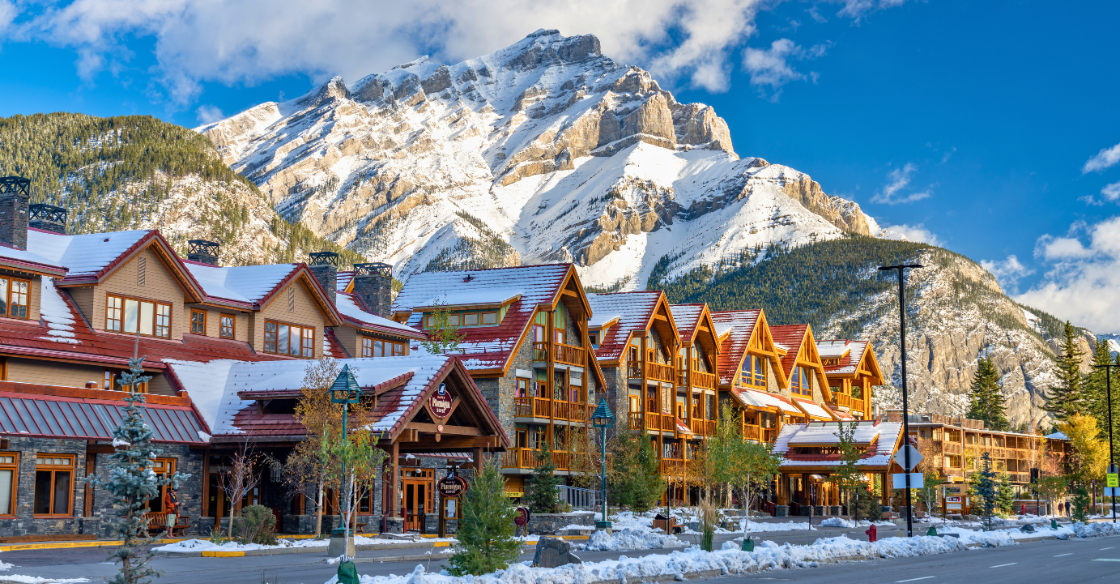Ski resorts are likely familiar with the ebb and flow of business throughout the year. The bustling peak season fills your rooms and restaurants, but crowds disperse during shoulder season. However, that doesn’t mean that all business has to cease.
For ski resorts, shoulder season is a golden opportunity waiting to be seized, even when the snow melts. Here, we’ll explore how ski resorts can attract more business during this off-peak period, particularly for meetings and events, and how sales teams can capitalize on this untapped potential.
What is Shoulder Season?
Shoulder season, also known as the transitional period between the peak winter season and the onset of summer activities, is a term commonly used in the ski resort industry. For ski resorts, this typically occurs from late March to June and again in the fall before the snow returns. During this time, the slopes are still open, but visitor numbers dwindle, presenting both challenges and opportunities for hotel owners.

Why Off-Season Ski Resorts are Ideal for Meetings and Events
Despite what you might think, shoulder season is actually a hidden gem for hosting meetings and events and an excellent way to increase hotel revenue. Here’s why:
1. Scenic Beauty: Imagine the allure of holding a conference or team-building retreat amidst snow-capped peaks and pristine slopes. The unique charm of ski resorts during shoulder season adds a refreshing change of scenery from typical urban settings, making your events stand out and attract more business.
2. Cost-Effective: With reduced demand for accommodations and facilities during shoulder season, hotel owners can provide attractive packages and discounts. This cost-effectiveness is a win-win for both parties, making shoulder season an ideal time for meeting planners to save on costs without compromising quality.
3. Availability and Flexibility: Due to high demand, securing dates and venues during peak season can be challenging. In contrast, shoulder season offers greater availability and flexibility, empowering meeting planners to choose their preferred dates and customize their experiences to best suit their needs.
4. Recreational Activities: Ski resorts aren’t just about skiing and snowboarding. They offer many other recreational activities, such as hiking, mountain biking, and spa treatments, ensuring attendees have plenty to do during downtime.

Make the Most out of Shoulder Season
Now that we’ve highlighted the potential of shoulder season let’s discuss how hotel owners can prepare to maximize this opportunity:
Marketing Campaigns
Launch targeted marketing campaigns promoting the allure of shoulder season events. For instance, you could highlight the benefits of hosting meetings and retreats at your resort during this time, such as discounted rates, exclusive packages, and access to recreational activities. Here are some successful examples of such campaigns: [insert examples].
Infrastructure Maintenance
Use the off-peak period to conduct necessary maintenance and renovations to ensure your property is in top condition. Enhance facilities and amenities to attract top bookings when peak season rolls around again.
Staff Training
Train your staff to provide exceptional service tailored to the needs of corporate clients and group bookings. During shoulder season, businesses in resort towns may shutter their doors for extended periods. Ensure your team is well-prepared to deliver a seamless experience by staying informed about essential services, such as transport and dining, that may be closed. Your local CVB or tourism bureau can help navigate the third-party services your guests may need.
Use Meetings and Events Data to Target New Accounts
Ski resorts may not be the first type of property meeting planners consider for their spring or fall corporate events, but that doesn’t mean the opportunity isn’t there. By leveraging data, such as booking patterns and account preferences, you can ensure you’re targeting the right leads and making the most of your outreach.
When looking for group bookings for your ski resort during shoulder season, consider accounts that:
- Have booked experiential events in the past, such as destination events
- Have booked at similar resorts, chain scales, and markets in the past
- Have specific square footage needs aligned with your availability
- Have booked events during off-peak seasons
You can use Knowland to identify strategic accounts and use data such as booking history, preferences, and meeting sizes (among many other data points) to target the right accounts for your need periods. Get a personalized demonstration to see our tools in action.
How to Book More Group Business During Ski Shoulder Season
Now, let’s explore practical strategies for hotel owners to book more group business during ski shoulder season:
- Offer Incentives: Create enticing packages that include discounted room rates, complimentary meeting space, and value-added perks like recreational activities or spa treatments. These incentives can sway event organizers to choose your resort over competitors.
- Create Tailored Packages: Customize packages to cater to the specific needs and preferences of different groups, whether corporate retreats, team-building workshops, or industry conferences. Flexibility is crucial in accommodating a wide range of requirements.
- Streamline the Booking Process: Offer online reservation systems and dedicated event planning support to simplify booking for small groups. This will make it easy for organizers to inquire, book, and manage their events seamlessly.
- Promote Testimonials and Success Stories: Showcase testimonials and success stories from previous clients who hosted successful events during shoulder season. Positive reviews and endorsements can instill confidence in potential clients and motivate them to book with you.
Build Strategic Relationships with Meeting Planners
Although the slopes might be slow, spring and fall are popular for corporate events. Don’t let shoulder season stop you from reaching out to meeting planners. But when you do, ensure you’re making the most out of your conversation using fundamental data. Leveraging booking patterns on a group’s history will help elevate your conversation with the planner and show that you understand their needs.
Ski resorts have the potential to attract more business during shoulder season, especially when booking corporate meetings and events. By understanding the unique advantages of off-peak periods, being well-prepared, and using robust data to fine-tune their booking strategies, hotel owners can unlock new revenue streams and establish their resorts as premier destinations year-round.
Want to learn more about using data to secure more bookings? Speak to an expert at Knowland today.

